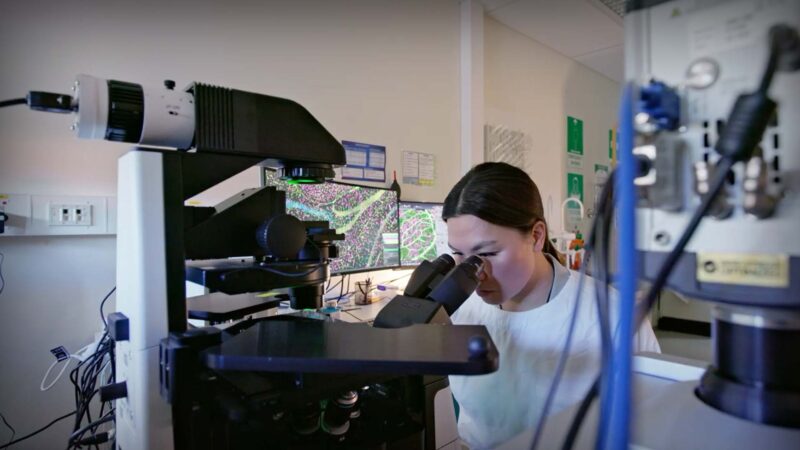RESEARCHER PROFILE
Jason Rogers (Filmed April 2024)
Postdoctoral Fellow
Menzies Institute for Medical Research,
University of Tasmania
Jason Rogers is a Tasmanian physiotherapist clinician-researcher with a longstanding interest in improving musculoskeletal foot and ankle conditions. He completed his PhD at the Menzies Institute for Medical Research at the University of Tasmania in 2022 investigating the clinical and imaging factors associated with a common foot complaint known as chronic plantar heel pain.
Chronic plantar heel pain, historically known as plantar fasciitis, is common and commonly recalcitrant, yet the optimal treatment for this condition is not clear. The focus of Jason’s postgraduate research is on improving treatment pathways for chronic plantar heel pain. In particular his research has identified that there are many different sub-groups of plantar heel pain that may warrant specific and individualised treatment approaches. For example his research found that up to half of people with this condition have a type of bone bruise or stress response in the heel known as a ‘bone marrow lesion’ (BML). His BALSA trial will test the effectiveness of targeting these lesions with a bone-sensitive treatment known as shockwave therapy, comparing pain and BML size outcomes against a sham shockwave control group.
As well as improving treatment outcomes for this specific and sizeable sub-group of heel pain sufferers, this research will help inform the future of targeted care treatment approaches for plantar heel pain.
You Might also like
-
Nutraceutical and pharmacological intervention in neurological disorders
Dr Virginie Lam is a neuroscientist and cerebrovascular biologist with over 15 years of research experience, including more than seven years post-PhD. She co-leads the Neurovascular and Metabolic Diseases Laboratory at the Curtin Medical Research Institute and holds an affiliate appointment at the Perron Institute for Neurological and Translational Science. Her research focuses on the interface between neurovascular health, cognitive function, and therapeutic translation in neurodegenerative disorders.
-
Public health and research into Ear, Nose and Throat conditions
Associate Professor Paul Paddle is an Ear, Nose and Throat (ENT) surgeon, head and neck surgeon with fellowship training in Laryngology – Voice, airway and Swallowing disorders. Working at Monash Health and Monash Children’s hospital, Paul has extensive experience managing a wide range of paediatric ENT conditions, from neonates to adolescents. He is also an active researcher in paediatric obstructive sleep apnoea and sleep disorders.
-
CASE STUDY Large scale genetic study finds link between Irritable Bowel Syndrome & cardiovascular system
Research published April 2024 in the journal Cellular and Molecular Gastroenterology and Hepatology sheds light on disease mechanisms common to irritable bowel syndrome (IBS) and cardiovascular diseases (CVD).



